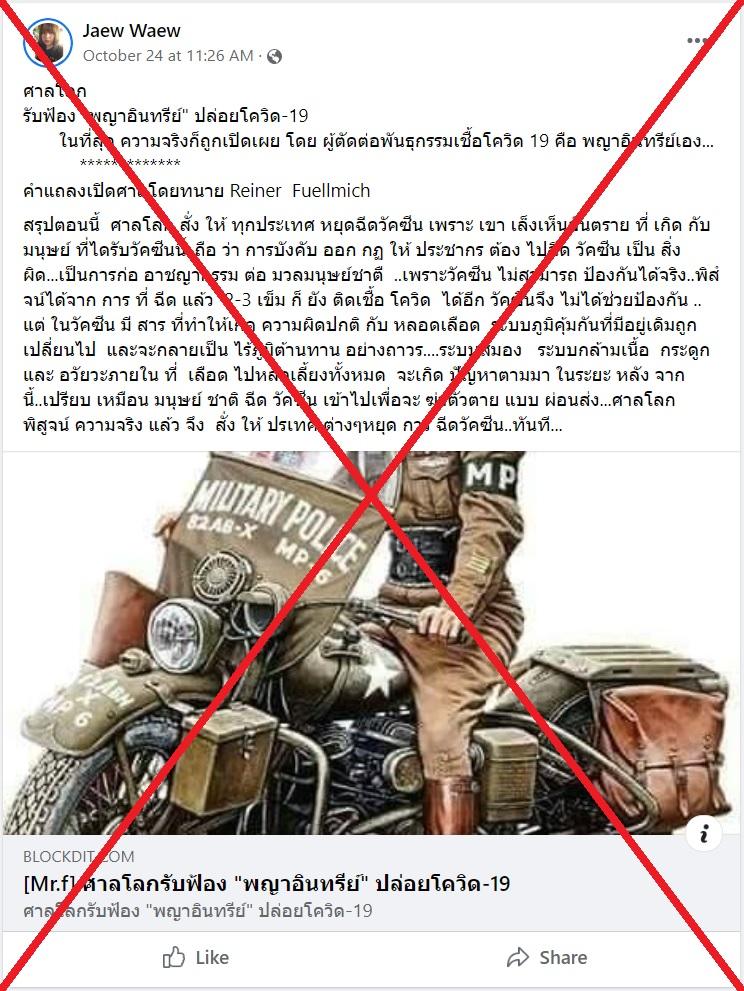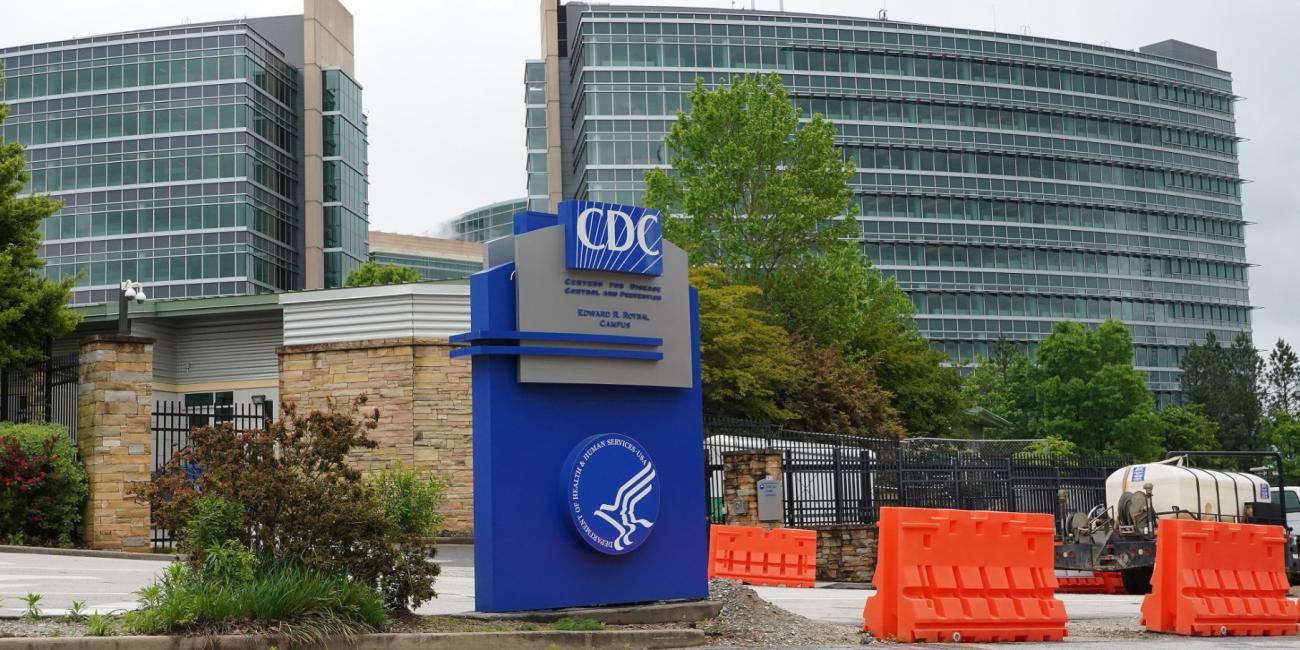
International Court of Justice did not order countries to scrap Covid-19 vaccine rollout
- This article is more than three years old.
- Published on November 29, 2022 at 07:39
- 2 min read
- By AFP Thailand
"Finally, the truth about gene-modifying Covid-19 vaccines," reads a Thai-language Facebook post shared on October 24.
"The world court has ordered all countries to cease vaccinations because they see the dangers to humans from this vaccine."
The International Court of Justice, sometimes known as the world court, is the United Nations' highest court.
The post adds that Covid-19 vaccines "cannot really protect people" and contain "a substance that causes irregularities with the blood vessels, which will permanently neutralise our body's immune system."

The post attributes the information to German lawyer Reiner Fuellmich -- who has previously shared false claims about the pandemic and Covid-19 vaccines -- and links to a now-deleted blog post on Thai platform Blockdit sharing the same claim.
Similar Facebook posts circulated here, here and here.
No power to block vaccination
Lori F. Damrosch, a professor at New York's Columbia Law School, said the International Court of Justice (ICJ) cannot order countries to stop vaccination.
"Only States can bring cases to the ICJ, and only by virtue of the consent of both States parties to the case," she told AFP.
"Without having consented, a State cannot be sued at the ICJ. No judgment or order could be issued against a non-consenting State."
The ICJ's role is to settle disputes between countries "based on the voluntary participation of the States concerned", the court's website says.
Furthermore, lists of the court's past and pending cases -- which include allegations of genocide in Ukraine and a dispute over the United States embassy's relocation to Jerusalem -- does not show any cases related to Covid-19 vaccination, as of November 29.
Vaccine safety
Thiravat Hemachudha, a neurology professor at Bangkok's Chulalongkorn University, said the posts shared incorrect information about Covid-19 vaccines.
"Vaccines do not neutralise antibodies as the post suggests," he told AFP.
"Covid-19 vaccines work by stimulating our antibodies to respond when the infection is detected. It does not strip away these functions."
Scientists have rejected claims that Covid-19 vaccines harm the immune system and alter DNA.
According to the World Health Organization, Covid-19 vaccines are "highly effective" in preventing serious illness, hospitalisation and death, although it notes that "no vaccine is 100 percent effective."
Health authorities such as Health Canada are monitoring Covid-19 vaccines for rare serious adverse events, but recommend the jab to all eligible citizens.
"The benefits of all Covid-19 vaccines continue to outweigh the risks of the disease," the department says.
Copyright © AFP 2017-2026. Any commercial use of this content requires a subscription. Click here to find out more.
Is there content that you would like AFP to fact-check? Get in touch.
Contact us




